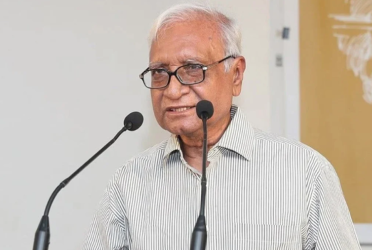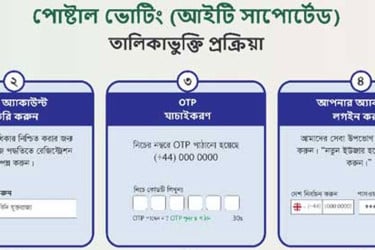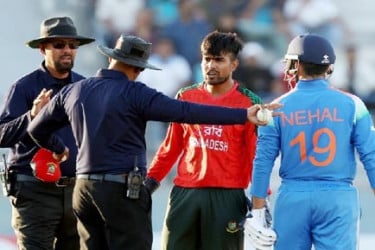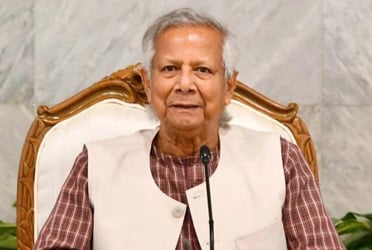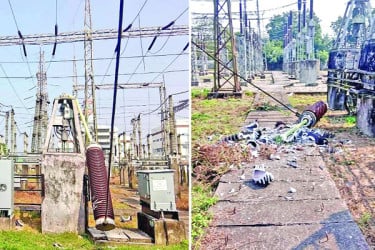ইংরেজির সবচেয়ে জটিল ও কঠিন tense গুলোর একটি হচ্ছে present perfect tense. অনেকেই হয়তো এর সঠিক ব্যবহার জানেন না বা করতে গিয়ে বিভ্রান্তিতে পড়ে যান। তাই এ বিভ্রান্তি দূরীকরণ এবং present perfect tense ব্যবহারের নানাবিধ দিক নিয়েই আজকের পর্ব। অনেকেই হয়তো জানেন যে শুধু সমাপ্ত কাজ বা অবস্থা বোঝাতেই এই tense ব্যবহার করা হয়। আসলে এ ধারণা সত্যি নয়। অসমাপ্ত কাজ বা কোনো অবস্থা বোঝাতেও আমরা এটি ব্যবহার করি। নিচে present perfect tense এর এরকম আরও বহু ব্যবহার নিয়ে বিস্তারিত আলোচনা করা হয়েছে।
With unfinished actions or situations [to express how long] : অসমাপ্ত কোনো কাজ বা অবস্থা যা অতীতে কোনো একটা সময় শুরু হয়ে এখনো চলছে বা অব্যাহত আছে বোঝাতে আমরা present perfect tense ব্যবহার করি। কোনো একটা কাজ বা অবস্থা কত সময় ধরে বিদ্যমান আছে বোঝাতে since I for এর সঙ্গে আমরা সচরাচর এই tense ব্যবহার করি। এ ধরনের অবস্থায় আমরা প্রায়ই stative verb ব্যবহার করি। [We use this tense when we want to talk about unfinished actions that started in the past and continue to the present. Usually we use it to say ‘how long’ an action or state has continued with ‘since’ and ‘for’. Often, we use stative verbs in this situation.] নিচের উদাহরণগুলো লক্ষ্য করুন :
1. I have known Ruma for ten years. [that means I met Ruma ten years back and I still know her.] [আমি রুমাকে ১০ বছর ধরে চিনি।]
2. We have lived in Mirpur since 2010. [আমরা ২০১০ সাল থেকে মিরপুরে বসবাস করছি।]
3. We have known each other very well for the last five years. [গত ৫ বছর ধরে আমরা পরস্পরকে বেশ ভালোভাবে জানি।]
Since I for ‰i mGã present perfect tense ব্যবহার :
অতীতের কোনো একটা নির্দিষ্ট সময় থেকে বোঝাতে আমরা Since ব্যবহার করি। আবার অতীতের এই নির্দিষ্ট সময় নিজেও একটা অ্যাকশন হতে পারে যা past simple tense দ্বারা বর্ণনা করা হয়। [We use ‘since’ with a fixed time in the past (2004, April 23rd, last year, two hours ago). The fixed time can be another action, indicated with the past simple (since I was at school, since I arrived]
1. I’ve known Suman since 1992.[১৯৯২ সাল থেকে আমি সুমনকে চিনি।]
2. I’ve liked chocolate since I was a child.[আমি শৈশব থেকেই চকোলেট পছন্দ করি।]
3. She’s been here since morning.[সকাল থেকেই সে এখানে আছে।]
সময়ের ব্যাপ্তি বোঝাতে আমরা for ব্যবহার করি। [We use ‘for’ with a period of time (2 hours, three years, six months)]
1. I’ve known Jui for ten years. 2. I’ve been hungry for hours.[কয়েক ঘণ্টা ধরে আমি ক্ষুধার্ত।]
3. She’s had a cold for a week.[এক সপ্তাহ ধরে সে সর্দিতে ভুগছে।]
ইতিমধ্যে সমাপ্ত হয়েছে এমন কোনো কাজ বা অবস্থা বোঝাতে আমরা সাধারণত present perfect tense ব্যবহার করি। এ ধরনের তিনটি অবস্থায় আমরা এই tense ব্যবহার করি যেমন life experiences, a finished action with a present result, and with unfinished time words.
Life experiences [জীবনের অতীত কোনো অভিজ্ঞতা বর্ণনা করতে] :
অতীতের কোনো একটা সময় আমরা কোনো অভিজ্ঞতার মধ্য দিয়ে গিয়েছি এমন সমাপ্ত অবস্থা বোঝাতে আমরা present perfect tense ব্যবহার করি। তবে ঠিক কখন তা সংঘটিত হয়েছে তা এক্ষেত্রে উল্লেখ করা হয় না। [we don’t say when the experience happened, just sometime in the past] নিচের উদাহরণগুলো দেখুন :
1. I have been to Tokyo. [আমি টোকিও গিয়েছি। অর্থাৎ আমি অতীতে কোনো একটা সময় টোকিও গিয়েছিলাম। তবে আমি এখন বাংলাদেশেই আছি তা বোঝাচ্ছে।]
2. She has lived in Canada.[ সে কানাডায় বসবাস করেছে। অর্থাৎ সে কোনো এক সময় কানাডায় ছিল। তবে সে এখন আর সেখানে নেই।]
3. They have visited Paris three times. [তারা তিনবার প্যারিস সফর বা পরিদর্শন করেছে। অতীতের কোনো একটা সময় তা সংঘটিত হয়েছে।]
4. We have never seen that film.
5. Have you ever read ‘War and Peace’? [হবাবৎ ও বাবৎ এর সঙ্গে আমরা প্রায়শ-ই present perfect ব্যবহার করি।]
finished actions with results felt in the present time :
কোনো কাজ অতীতে কোনো এক সময়ে সমাপ্ত হলেও এর ফল এখনো অনুভূত হচ্ছে বোঝাতে আমরা present perfect tense ব্যবহার করি। নিচের বাক্যগুলো লক্ষ্য করুন :
1. I’ve lost my house keys (so I can’t get into my house). [আমি আমার ঘরের চাবি হারিয়ে ফেলেছি। তাই আমি ঘরে ঢুকতে পারছি না। চাবি হারিয়ে যাওয়াটা অতীতে কোনো একটা সময় সংঘটিত হয়েছে অর্থাৎ ঘটনাটি সম্পন্ন হয়েছে। কিন্তু তার ফল এখনো অনুভূত হচ্ছে।]
2. She’s hurt her leg (so she can’t play tennis today).
3. They’ve missed the bus (so they will be late). [ তারা বাসটি ধরতে ব্যর্থ হয়েছে। তাই তাদের বিলম্ব হবে। ] 4. I’ve cooked dinner (so you should come and eat).
Unfinished time words :
অসমাপ্ত [আনফিনিশড] সময়বাচক শব্দ যেমন this month, this week, today ইত্যাদির সঙ্গে আমরা present perfect tense ব্যবহার করি। নিচের উদাহরণগুলো লক্ষ্য করুন :
1. I haven’t seen her this month. [চলতি মাসে আমি তাকে দেখিনি।]
2. She’s drunk three cups of coffee today. [সে আজ তিন কাপ কফি পান করেছে।]
3. This month I have seen ‘Sultan Suleman’ only three times. [এই মাসে আমি মাত্র তিনবার ‘সুলতান সুলেমান’ দেখেছি।]
Note: We can’t use the present perfect with a finished time word [মনে রাখতে হবে ফিনিশড সময়বাচক শব্দের সঙ্গে আমরা
present perfect ব্যবহার করি না। বরং past tense ব্যবহার করি।]
1. I saw him yesterday. Not I have seen him yesterday.
Present perfect tense ‰ Been I gone এর ব্যবহার :
Present perfect tense-এ আমরা go এর past participle রূপ been I gone উভয়টিই ব্যবহার করি। তবে দুটি ভিন্ন পরিস্থিতিতে তাদের ব্যবহার করা হয়। [In this tense, we use both ‘been’ and ‘gone’ as the past participle of ‘go’, but in slightly different circumstances.]
Been এর ব্যবহার : কেউ অতীতে কোনো একটা স্থান সফর বা পরিদর্শন করে ফিরে এসেছে বোঝাতে আমরা go এর past participle হিসেবে been ব্যবহার করি।
[We use ‘been’ (often when we talk about ‘life experience’) to mean that the person being talked about has visited the place, and come back. Notice the preposition ‘to’. ] নিচের উদাহরণগুলো লক্ষ্য করুন :
1. I’ve been to Paris (in my life, but now I’m in Dhaka where I live). [আমি প্যারিসে গিয়েছি। অর্থাৎ জীবনে কোনো এক সময় প্যারিসে গিয়েছিলাম। তবে এখন ঢাকায় আছি।]
2. She has been to school today (but now she’s back at home). [সে আজ স্কুলে গিয়েছে। অর্থাৎ সে আজ স্কুলে গিয়েছিল। স্কুল করে সে ইতিমধ্যে বাসায় ফিরে এসেছে।]
3. They have never been to California. [তারা কখনো ক্যালিফোর্নিয়া যায়নি।]
Gone এর ব্যবহার : কেউ কোথাও গেছে বোঝাতে আমরা go এর past participle রূপ gone ব্যবহার করি।
[We use ‘gone’ (often when we are talking about an action with a result in the present) to mean that the person is at the place now.] নিচের বাক্যগুলো লক্ষ্য করুন :
1. ‘Where’s Karim?’ ‘He’s gone to the school. (he’s at the school now).
2. Sumaiya has gone to Mexico (now she’s in Mexico). [সুমাইয়া মেক্সিকো গেছে। অর্থাৎ সে এখন মেক্সিকোয় আছে।]
3. They’ve gone to Japan for three weeks (now they’re in Japan). [তারা তিন সপ্তাহের জন্য জাপান গেছে। অর্থাৎ তারা এখন জাপানে আছে।]
শরীফ খান




